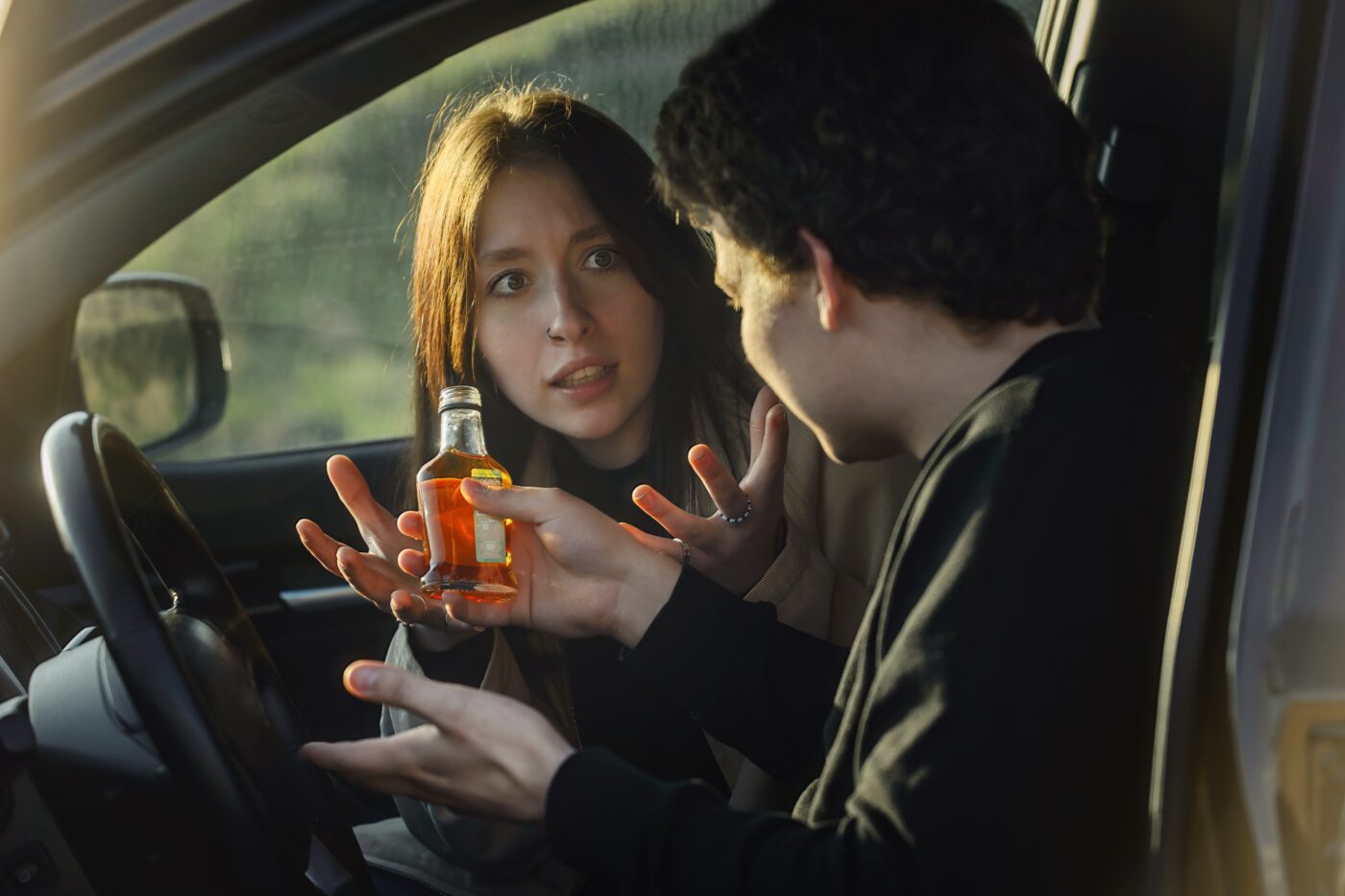
Several medical and mental health conditions share a genetic link. Examples of common conditions that “run in the family” include asthma, diabetes, cancers, heart disease, and others. One condition many do not think of when talking about genetic or hereditary conditions is addiction. But like coronary artery disease and certain types of cancer, the roots of addiction (at least for some) are in their DNA. So, in short, addiction can run in the family.
Learn more about our teen addiction treatment programs or call us now at 888-254-0916
Is There A Genetic Component to Addiction?
Addiction is a disease that affects people of all ages. Unfortunately, challenges related to drugs, alcohol, or other addictions that affect teens often evolve into lifelong medical and mental health difficulties. In addition to other addiction risk factors discussed below, studies show genetics significantly influence the development of addiction in one’s lifetime. Most research suggests between 40%, and 60% of addiction risk is connected to genetics. However, it is essential to remember that having a family member who lives with addiction does not guarantee that someone will develop an addiction themselves. A genetic predisposition means that one is more prone to it.
Genetics vs. Environment
There is sometimes confusion surrounding the influence of genetics and environment. Genetics or genetic influence are those things that one has no control over. Genetic influence is “handed down” from parent to child as part of their DNA; therefore, genetic connections are something someone is born with. On the other hand, environmental factors are dictated by one’s surroundings.
Environmental factors are elements of one’s life, such as family beliefs, their peer group, community structure, household dynamic, etc., that contribute to addiction. These factors are also strongly linked to addiction development. For example, a teen who spends time with or around people who use drugs or drink (whether family members or peers) is more likely to try drugs or alcohol at an earlier age.
What are Other Addiction Risk Factors?
In addition to genetic and environmental factors, several other aspects of one’s life may increase their risk for drug or alcohol use and abuse.
Media and school
One’s close peer group affects their environmental risk for addiction. But, it is not just close friends that have an influence. A teen’s extended social group, such as classmates or the overall attitude about substance use at your teen’s school, can also impact drug and alcohol experimentation. In addition, a student who experiences difficulties at school, such as bullying or exclusion from social groups, may also choose substances as a way to cope with feelings of loneliness and isolation.
Social media and television can also play a role in addictive behaviors in adolescents and teens. The teen mind is highly influenced by what they see on social media feeds, movies, or television shows. When they see someone they respect or idolize engaging in these behaviors, it can lead to the belief that drug or alcohol use is not as harmful as they have been told. Sadly, substance use is often glorified or joked about in the media, making the consequences of addiction appear less dangerous.
Trauma history
Youth and teens with a trauma history (witnessing or experiencing violence, the death of a family member or loved one, abuse, etc.) are at a higher risk for using substances later in life. The effects of childhood trauma manifest differently from person to person. While some teens may be able to manage traumatic events effectively, others experience different challenges. This is especially true for youth who live with long-term or repetitive trauma.
Mental or medical illness
People, regardless of age, who live with chronic mental or medical health symptoms that are inadequately managed through other means may turn to drugs or alcohol as a way to improve how they feel. Most substances will (at least for a short time) dull pain or reduce and even eliminate many invasive mental health symptoms. Unfortunately, relief is typically short-lived, which leads to more frequent dosing at higher amounts to keep symptoms at bay.
This practice can, and often does, lead to long-term substance abuse challenges. For teens diagnosed with attention-deficit hyperactivity disorder, anxiety, depression, or other conduct disorders, using substances to self-medicate is a common practice. The same applies to chronic medical challenges such as pain management or injury. As a parent, knowing what the signs of substance abuse look like is essential so you can know when and how to seek help at a teen treatment center like Beachside.
Are There Specific “Addiction Genes”?
Humans have approximately 20,000 genes in their DNA, and science shows there is no single “addiction gene.” However, researchers have discovered several genes associated with addiction and several that are connected to specific substance use disorders. For example:
- The genes GABRA2 and CHRM2 have been linked to alcohol use disorder.
- Research suggests that low levels of the gene CHRNA2 are associated with marijuana addiction.
- A large study showed more than 400 locations in human DNA related to alcohol and tobacco use.
- HIST1H2BD was identified in one large study as being related to cocaine addiction.
Research into the connection between addiction and genetics remains ongoing, and many new discoveries are sure to arise. Recently, studies have pointed to protective factors in one’s genetics as well. Protective factors are preventative characteristics that may help prevent the development of addiction. Recent studies have shown certain genes may protect against alcohol addiction and improve stress resilience.
Related: Is Addiction A Disease or A Disorder?

Can You Prevent Addiction if You Have A Genetic Predisposition?
As previously mentioned, genetic predisposition, while a significant contributor to addiction risk, does not guarantee one will develop a substance use disorder later in life. There are several things your teen can do (and you can do as a parent) to help reduce the risk of addiction development.
Promote education
One of the most effective ways to prevent teen addiction is to talk about the risk of drug and alcohol use. Someone who understands the potential adverse outcomes of using drugs or alcohol is more likely to choose safer, more helpful ways to manage their symptoms. Also, they are likely more likely to avoid social environments that encourage harmful, negative activities such as teen drinking and drug use.
Youth and teens begin experimenting with substances at an early age, and studies show that the earlier one starts using, the more difficult it is to overcome an addiction later in life. So, being open with your child and encouraging education about substance abuse and addiction at an early age is important. Although this type of education does happen at school, it is also crucial to open the doors to communication at home. This will help your teen see you as someone they can turn to about other complex and challenging issues.
Teach and promote healthy coping skills
As mentioned above, many teens and adults who live with a substance use disorder started using alcohol or drugs as a way to cope with painful or unpleasant symptoms related to mental or medical health conditions such as anxiety, depression, or chronic pain. Self-medication can help improve symptoms in the short term, but the long-term effects of this practice are dangerous. Teaching your teen healthy ways to cope with stressors or other life challenges can give them the tools they need to safely and more effectively manage common and daily difficulties. Examples of easy-to-learn coping tools may include:
- Meditation
- Outdoor activities such as walking, hiking, or running
- Journaling
- Self-care practices
- Deep breathing exercises
- Trying a new hobby (or returning to an old one)
Avoid engaging with triggers
Triggers can be many things. For someone with a substance use problem, a trigger can be anything from a location, memory, or person. Learning what triggers are and how to manage them without using drugs or alcohol is key to preventing substance use and avoiding relapse after completing an addiction treatment program.
Know When to Seek Help
A genetic predisposition to addiction does not mean addiction is inevitable. Still, the challenges one will face along the way may be more significant than those of someone with the same genetic influence. As a parent or caregiver for a youth or teen with an increased genetic risk for addiction (or a teen who has already started experimenting with substances), it is essential to seek professional help as soon as you know or suspect there is a concern. Without help, drug and alcohol use can quickly evolve into new or worsening medical or mental health challenges with life-long impacts.
Treatment for teen drug and alcohol addiction is generally similar to treatment programs for adults. However, choosing a teen-focused program like ours at Beachside ensures the medical and mental health providers supporting your teen on their recovery journey are skilled in teen addiction treatment. The ideal therapy model treatment duration will depend on various factors unique to your child’s needs, including what type of substances they use, how long they have been using, and if other medical or mental health concerns may contribute to substance use and abuse.
At Beachside, we will work with your family to develop a care plan based on your teen’s needs as they enter treatment. We understand that many substance use disorders are rooted in underlying mental health needs. As part of our assessment process, we will complete a thorough medical and mental health evaluation to ensure the therapy models chosen are the best suited to help your teen begin their healing journey.
Addiction is a challenge that everyone faces differently. The road to recovery looks different for each person who seeks help at a drug and alcohol treatment program. Let us help your family put the challenges of substance abuse in the past. Contact a member of our admissions team today to learn more about our programs.
https://www.ncbi.nlm.nih.gov/books/NBK115605/
https://www.ncbi.nlm.nih.gov/pmc/articles/PMC8477224/
https://www.ncbi.nlm.nih.gov/pmc/articles/PMC2715956/
https://www.sciencedirect.com/science/article/pii/S0278584619301101




